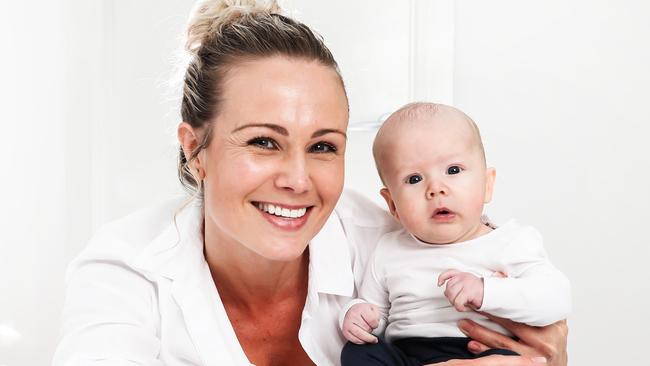More than 40 per cent women are supplementing breastfeeding
New Queensland research out today shows that the “breast is always best” directive is out of touch with the real world and more than 40 per cent of women supplement breast milk with formula or solids
QLD News
Don't miss out on the headlines from QLD News. Followed categories will be added to My News.
MOST mothers stop breastfeeding due to physical problems such as lack of milk, mastitis and latching new Queensland research has revealed, sparking the message that the “breast is always best” directive is out of touch with the real world.
The study from the University of Queensland out today in the Journal of Human Lactation highlights the need for new mums having difficulties to be shown more compassion and support rather than intense pressure to continue putting their babies solely on the breast.
Lead researcher Dr Katrina Moss has recommended that mothers receive evidence-based information about natural fluctuations in breast milk production, how to safely formula feed and how to recognise cues that their baby is ready for solids.
The little known condition affecting new mums once breastfeeding stops
Study shows formula as healthy as breastfeeding on one condition

“The majority of mothers don’t exclusively breastfeed, usually for very good reasons and the support they receive needs to reflect this,” Dr Moss from the School of Public Health said.
The UQ researchers probed the reasons why only 34 per cent of mothers exclusively breastfeed to six months in spite of the global push to increase rates to 50 per cent. They looked into data from nearly 2900 women with more than 5300 children.
“Mothers can feel intense pressure to breastfeed but breastfeeding isn’t best for everyone. If mothers run into breastfeeding problems they may need to supplement or stop,” the doctor said.
Dr Moss said compassion must play a bigger role in the breastfeeding debate.
“Feeding difficulties can increase the risk of perinatal anxiety and depression, which is experienced by up to 20 per cent of mothers,” she said.
The study found 41 per cent of mothers supplemented breastfeeding with solid food or formula.
Gold Coast mum of four Tania Elizabeth says there is immense pressure on new mums to keep up with breastfeeding but for many it is not physically possible. She is breastfeeding her new baby 11-week-old Elias.
“I can only feed from one breast so that can be difficult but I’m hoping to keep feeding for at least six months.
“But I know many women, including my sister, who have not been able to feed their babies and they tend to beat themselves up over it.
“It is through no fault of their own and they definitely need more support,” she said.



